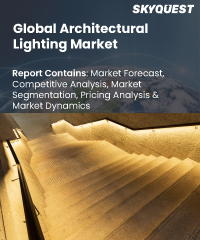
Report ID: SQMIG20D2149

Report ID:
SQMIG20D2149 |
Region:
Global |
Published Date: March, 2024
Pages:
184
|
Tables:
147 |
Figures:
78
North America stands as the largest and most dominating in the global architectural lighting industry. This prominence can be attributed to several factors, including a robust economy, ongoing urbanization, and a strong emphasis on cutting-edge infrastructure. The region's well-established commercial and residential sectors drive substantial demand for architectural lighting solutions. Additionally, high awareness of energy efficiency and sustainable practices has driven the adoption of energy-saving lighting systems in North America.
However, the Asia Pacific region emerges as the fastest growing. Rapid urbanization, substantial infrastructural developments, and a burgeoning consumer base are propelling the demand for architectural lighting solutions. Countries like China, India, and Southeast Asian nations are witnessing significant growth in construction activities, particularly in commercial and residential sectors, contributing to the upsurge in architectural lighting demand. Furthermore, the rise of smart city initiatives in the region is driving the adoption of innovative lighting technologies for enhanced urban environments.
Our industry expert will work with you to provide you with customized data in a short amount of time.
REQUEST FREE CUSTOMIZATIONWant to customize this report? This report can be personalized according to your needs. Our analysts and industry experts will work directly with you to understand your requirements and provide you with customized data in a short amount of time. We offer $1000 worth of FREE customization at the time of purchase.

Report ID: SQMIG20D2149